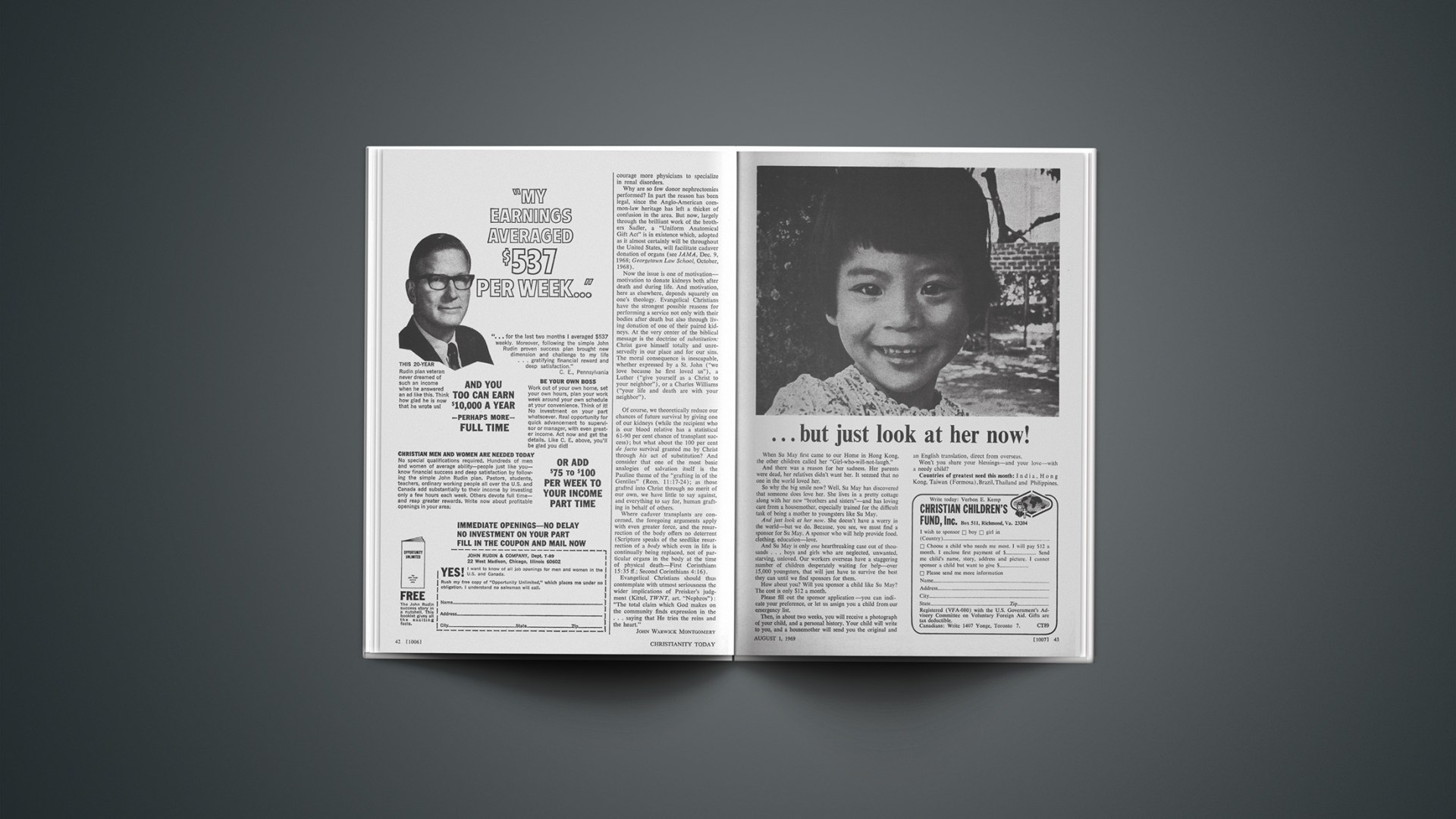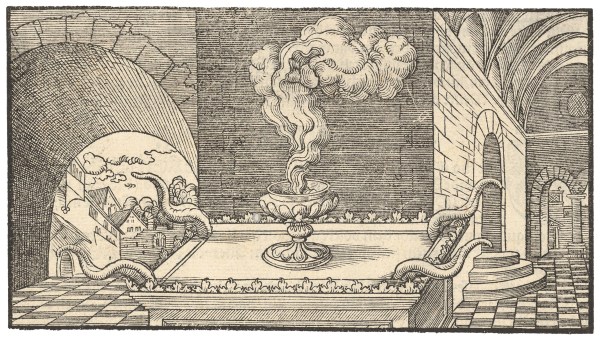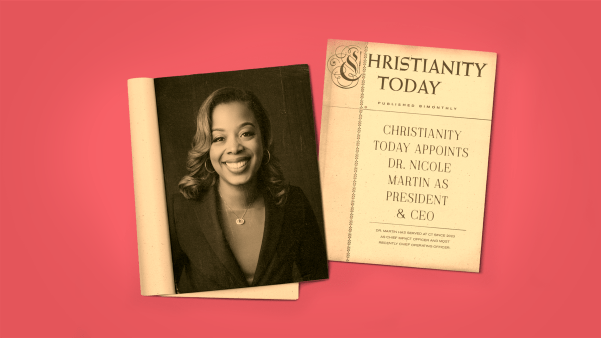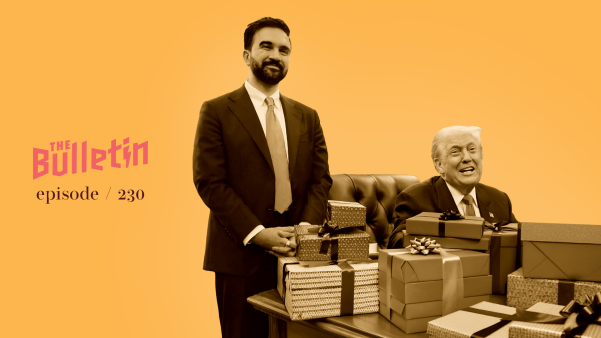In a cliff-hanging finale after more than six years of discussion, the Church of England last month rejected the plan of unity with the Methodist Church. Voting in the joint Convocations of Canterbury and York gave the scheme a 263 to 116 majority vote, but this was 6 per cent short of the 75 per cent needed for approval.
Announcement of this result by the Archbishop of Canterbury brought cries of “Shame” from members and from the public gallery. Among the minority were the Bishops of Ripon and Peterborough, who had long opposed the project, and they were joined by the Bishops of Leicester, Carlisle, and (a minor surprise) Sheffield.
While the Anglicans were meeting at Westminster, a parallel vote was being taken simultaneously in Birmingham by the Methodist Conference. Here the situation was reversed, for they voted 524 to 153 in favor, topping the required figure by 2.4 per cent.
Formally proposing the resolution at Westminster was the Bishop of Ely, the Right Rev. Edward Roberts. If the scheme is rejected, he warned, “I doubt if it will be possible to preserve much order or to abide by any regulation in matters to do with intercommunion and church discipline, or to contain exasperation and disillusionment of a large number of the younger clergy and laity of the Church of England.” Dr. Roberts went on to describe the controversial service of reconciliation as the best method of dealing with the situation (see “Being Ambiguous on Purpose,” Current Religious Thought, July 19, 1968, issue). “It will pass into the history of our church as a document,” he declared, “perhaps not unlike the 39 Articles: a useful museum piece that has served a valuable purpose in a given situation, and is then stored away in the pages of history.”
While this latter utterance was not likely to commend itself to evangelicals, it was Dr. John Moorman, Bishop of Ripon, who spearheaded the opposition. “I can say with certainty,” said the prominent high churchman, “that none of us who will vote against the motion today is lacking in faith or in a desire for Christian unity.” Acceptance of the present scheme must nevertheless have “a very divisive effect upon the church and give rise to much unhappiness.” Many clergy might feel that they could not continue their ministry in a church thus united.
Both archbishops, and the influential Bishops of London and Bristol, spoke out in support of the proposals, and the outcome must be regarded as a considerable rebuff to them.
Proposing the motion at the Methodist Conference, Dr. Harold Roberts said that rejection would have “a calamitous effect on those who are concerned about this union in different parts of the world.” But Dr. Leslie Newman, a Methodist evangelical leader, disagreed. “There are bigger and better roads,” he insisted; “roads free from danger and difficulties. Division is no way to unity.”
Despite the now-or-never note sounded by majority speakers in both churches, the Archbishop of Canterbury and Dr. Roberts later aired the possibility of bringing up the issue again in the very near future. Said Dr. Ramsey at a press conference in answer to a question: “I am not resigning. I am rather amused at the suggestion.”
His predecessor as primate, now Lord Fisher of Lambeth, commented that this had been no defeat for unity of spirit, but rather for “a faulty scheme of union.” Added the 82-year-old archbishop, who now ministers in a country parish: “It is impossible to talk about unity without talking also about truth and righteousness.”










